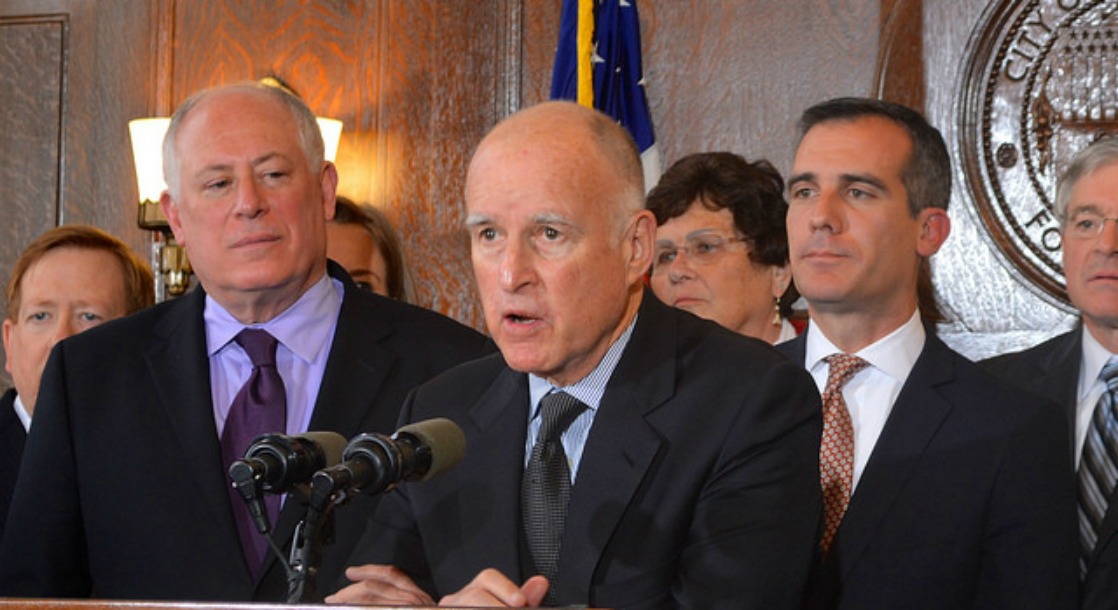A legislative proposal from California’s Governor Jerry Brown that would reconcile aspects of the state’s medical and recreational cannabis industries is under fire from all sides as lawmakers, marijuana advocates, and police officials alike worry that the bill is too hands off and gives too much power to canna-businesses.
As we reported last week, the Governor’s bill (a trailer to the state’s annual budget) would allow individuals an unlimited number of cannabis licenses, allow cultivators to act as their own distributors, and remove permitting regulations that require local municipalities to approve pot shops before they can acquire a state permit.
Unlike Colorado, where legislators just passed a bill that would allow recreational companies to turn medical at the drop of a hat if federal enforcement were to arise - California would have a cannabis industry with different tax structures in place for medical and recreational sales.
But now, according to the L.A. Times, lawmakers and policy advocates across California are upset that Brown’s unifying bill does away with some of the medical marijuana provisions that have guided the state since 2015.
“It is so outrageous to take what was one of the notable accomplishments of 2015 and shunt everything into the framework of the self-interested, moneyed backers of Proposition 64,” Democratic Assemblyman Ken Cooley, who co-authored the 2015 medical regulation law, said.
The Governor and his administration proposed the bill as a way to speed up the state’s recreational regulations, as well as to standardize California’s two cannabis industries in an effort to cut out any confusion and waste that they say would arise from having two concurrent systems.
Detractors say that new regulations are fine, but dismantling the state’s successful medical regulations would put all the power in the pockets of California’s well-funded canna-business powerhouses and pull regulatory power from local governments and law enforcement.
“To undo that work now in favor of a pork-barrel proposition run by the industry is antithetical to good governance,” Cooley said. “If the governor intends to move forward with this proposal, I will vigorously oppose the trailer bill and urge my colleagues to do so as well.”
Industry insiders say that Governor Brown’s proposal would allow businesses to thrive without the need to hire outside distribution or go through local licensing.
For now, it doesn’t appear that Brown’s current version of cannabis regulation will get through state legislators, so it’s back to the drawing board as Californians figure out just how they’ll go about opening the country’s largest recreational weed marketplace.











